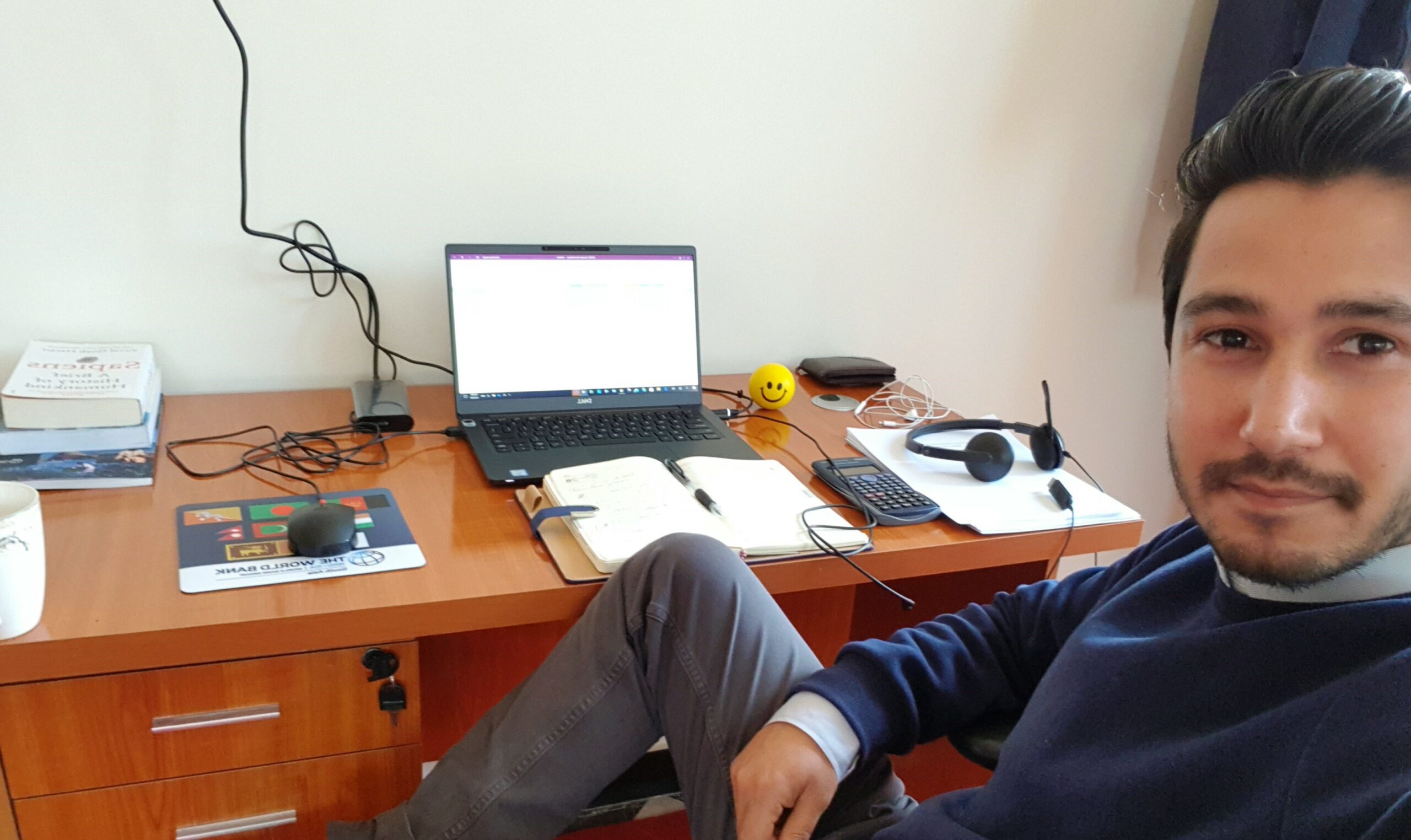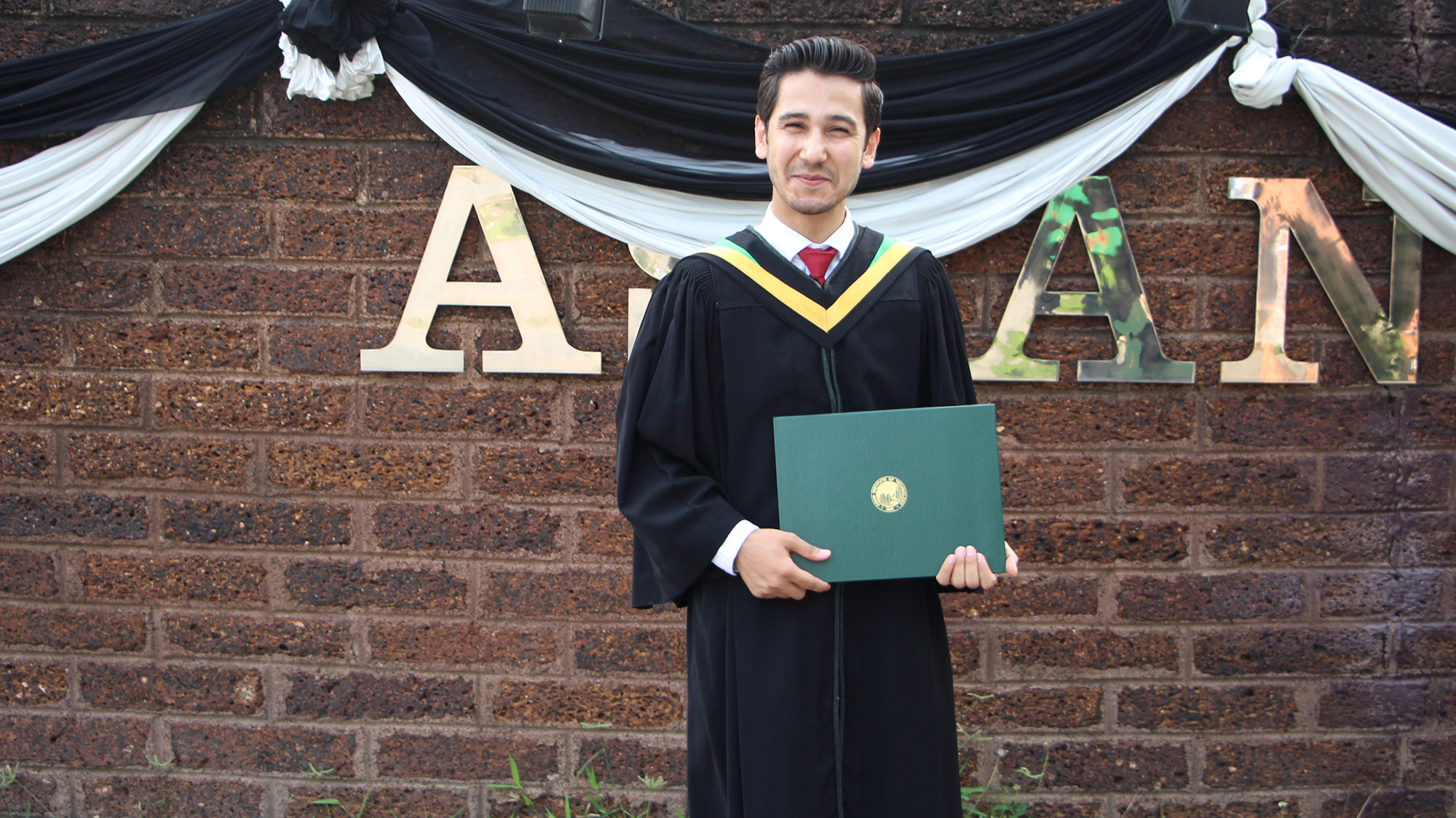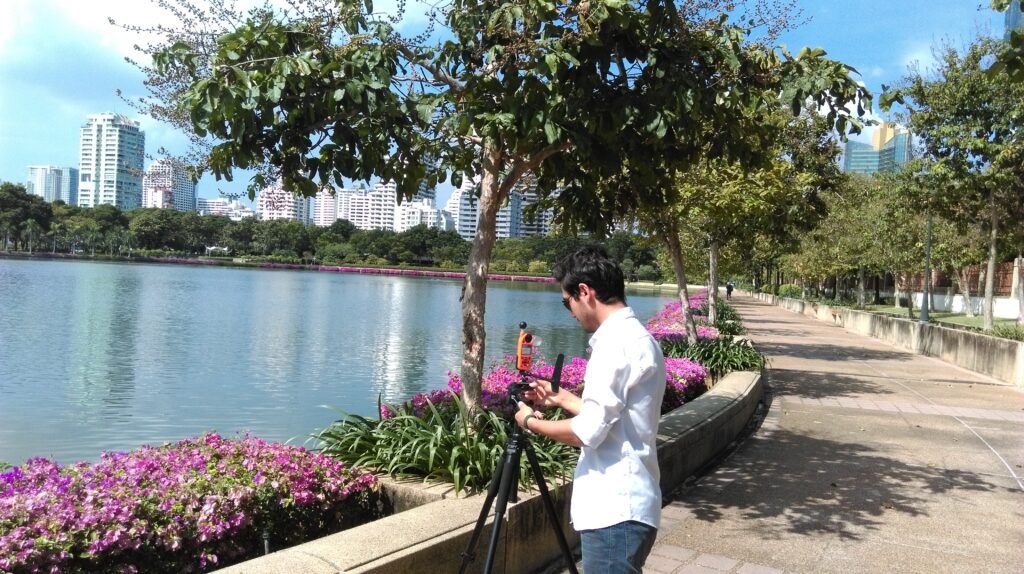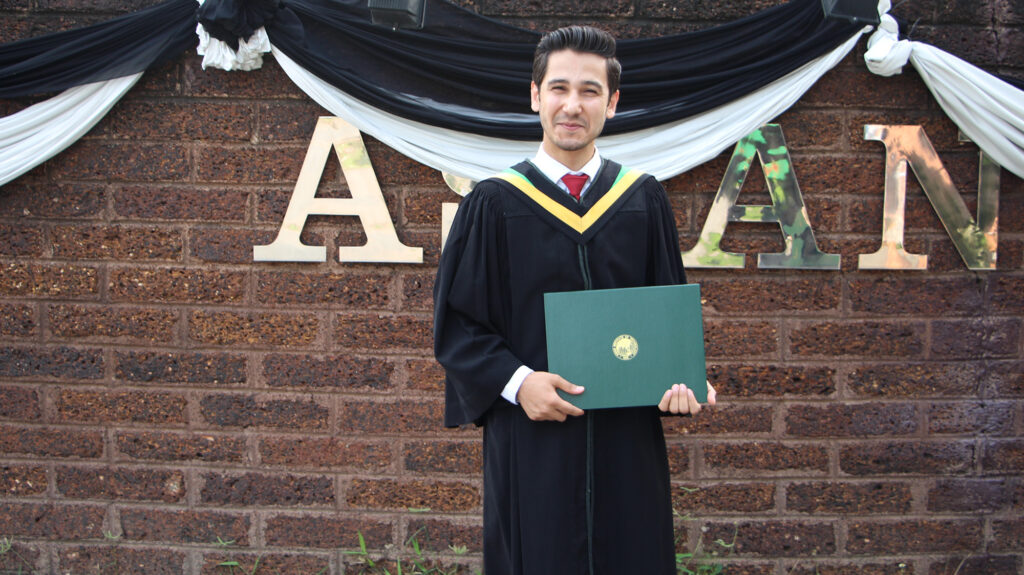By Mae Thiwari
Former Asian Development Bank scholarship student turned World Bank water expert, Abdul Naser Majidi, is working through tough challenges on the first ever mega Water-Sanitation-Hygiene program in Afghanistan.
Working as a trainee engineer in 2013 on a dam project, Majidi noticed how almost all the water specialists working for the Afghan Ministry of Energy and Water at the time were foreigners. He thought of how sustainable this would be for the country to have its own water specialists. In 2015, he joined AIT for the Joint Degree program with IHE Delft Institute for Water Education, studying for a master’s degree in Water Engineering and Management (WEM) with AIT in Thailand and Urban Water Engineering and Management with IHE Delft in the Netherlands.
“The program combines the best education in water management in Asia and in Europe. I am grateful for AIT for giving me and others this kind of opportunity to gain knowledge and experience to become a leader in water management,” said the World Bank Consultant at Water Global Practice.
Upon his graduation in 2017, Majidi returned from the Netherlands to Thailand to work with his Advisor, Dr. Sutat Weesakul at AIT for three months, on a consultancy project funded by United Nations University in Tokyo. This experience had prepared him for the role of a Technical Consultant as he returned to his home country and started working for the Ministry of Energy and Water in that same year.
Having fulfilled his contract, Majidi went on to become a Technical Advisor for the Urban Water Supply and Sewage State-Owned Corporation (UWASS), working as a focal point for the international donor-funded projects. He also pioneered a system digitization for UWASS -- for the first time, the country’s urban water supply infrastructure had been mapped and the asset inventory had been digitized. He also proposed development of an elaborated system for the real-time monitoring of water supplies whilst there.
In September 2019, he joined the World Bank as a Consultant for Water Global Practice, facilitating the funding of water infrastructure projects. From conceptualizing to implementing the Afghanistan Water Sanitation Hygiene and Institutional Support Program (A-WASH), Abdul Naser Majidi is working on a series of projects, particularly the mega constructions of the first-ever centralized water treatment plant and the 30 kilometers water transmission pipeline system to supply over 250 million liters per day (MLD) of water to 2.5 million residents of Kandahar city, one of the biggest cities in Afghanistan, by 2055.
The program will also finance measures to restructure, reform and improve the urban water utility’s operational and financial performance, and it will accordingly safeguard basic water supply in Kandahar, Kabul, and Herat, contribute to the containment of COVID-19 and bolster the country’s resilience to future disease outbreaks and other disasters, including those induced by climate change-related threats.
Poor water and sanitation services in the three largest cities of Afghanistan – Kabul, Kandahar and Herat – are a particular concern due to these cities’ high proportion of share, up to 66%, of the country’s urban population. The existing piped network, less than 20% coverage, in these cities and specially in Kandahar and Kabul is still limited and intermittently operational, Majidi explains how working to provide clean water and safe sanitation is part of helping his people to achieve their basic right.
“I’m very proud that my education from AIT and IHE Delft Institute have allowed me to have an impact on my country and to help my people through my work on such a strategic and important program,” said the WEM alumnus.

As one of the 30 students chosen to participate in the Afghanistan Western Water Resources Project – facilitated by AIT Solutions, Majidi was awarded a scholarship from the Asian Development Bank (ADB), funded by the Canadian Department of Foreign Affairs, Trade and Development (DFATD), to study at AIT.
“AIT is an exceptional experience for me,” said Majidi as he reminisced his memories of the peaceful environment, the green campus where he could ride his bicycle around, and the support he received from the faculty, fellow students, and staff. He added that “there were challenging times as well, and I will never forget how AIT Solutions had reached out to support us. I’m very grateful.”
In addition to paying it forward by contributing his expertise to the development of his country, Majidi also got together with his colleagues to develop a proposal and curriculum for establishment of Water Resources and Environmental Engineering Department for a bachelor’s degree at Herat University. His aim is to produce more water experts for Afghanistan. The first batch of students can enroll in the program in the coming year.
Speaking of challenges, the only issue weighing heavily on Majidi’s mind at the moment is the security situation in Afghanistan. With the majority of his project taking place in Kandahar, where the Taliban is currently gaining more control, he is worried about the water project, the safety of the people of Afghanistan, specially those whom are working on such projects and his family. While working for development of his country, Majidi has received life threats and been targeted several times, but he is still highly motivated and committed in order to make Afghanistan a better place to live for all. “We hope the country can reach a peace deal with Taliban, so that everyone can taste a peaceful life and that we can implement our project in due time and in the best way,” said the dedicated water specialist.



